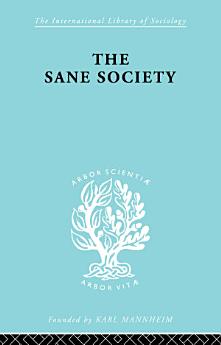Sane Society Ils 252
ต.ค. 2013 · Routledge
eBook
384
หน้า
family_home
มีสิทธิ์
info
reportคะแนนและรีวิวไม่ได้รับการตรวจสอบยืนยัน ดูข้อมูลเพิ่มเติม
เกี่ยวกับ eBook เล่มนี้
Following the publication of the seminal Fear of Freedom, Erich Fromm applied his unique vision to a critique of contemporary capitalism in The Sane Society. Where the former dealt with man's historic inability to come to terms with his sense of isolation, and the dangers to which this can lead, The Sane Society took his theories one step further. In doing so it established Fromm as one of the most controversial political thinkers of his generation. Anaylsing how individuals conform to contemporary capitalist and patriarchal societies, the book was published to wide acclaim and even wider disapproval. It was a scathing indictment of modern capitalism and as such proved unwelcome to many. Unwelcome because much of what Fromm had to say was true. Today, as we settle into the challenges of the 21st century, Fromm's writings are just as relevant as when they were first written. Read it and decide for yourself - are you living in a sane society?
ให้คะแนน eBook นี้
แสดงความเห็นของคุณให้เรารับรู้
ข้อมูลในการอ่าน
สมาร์ทโฟนและแท็บเล็ต
ติดตั้งแอป Google Play Books สำหรับ Android และ iPad/iPhone แอปจะซิงค์โดยอัตโนมัติกับบัญชีของคุณ และช่วยให้คุณอ่านแบบออนไลน์หรือออฟไลน์ได้ทุกที่
แล็ปท็อปและคอมพิวเตอร์
คุณฟังหนังสือเสียงที่ซื้อจาก Google Play โดยใช้เว็บเบราว์เซอร์ในคอมพิวเตอร์ได้
eReader และอุปกรณ์อื่นๆ
หากต้องการอ่านบนอุปกรณ์ e-ink เช่น Kobo eReader คุณจะต้องดาวน์โหลดและโอนไฟล์ไปยังอุปกรณ์ของคุณ โปรดทำตามวิธีการอย่างละเอียดในศูนย์ช่วยเหลือเพื่อโอนไฟล์ไปยัง eReader ที่รองรับ







